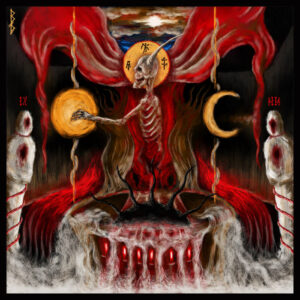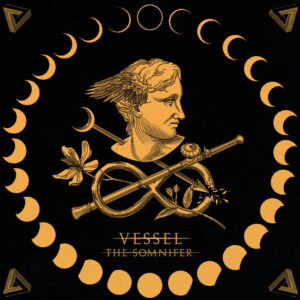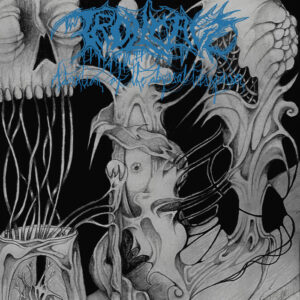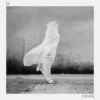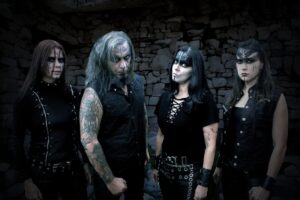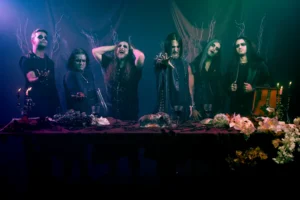Violeta Mosquera
BALA
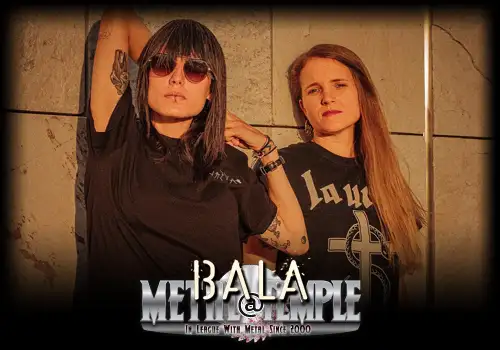
Yes! One from Lugo and the other one from Santiago, but we live in Pontevedra and A Coruña respectively.
It´s AWESOME. One of the best in Spain, I'd say. There is a great underground scene, and you can find any kind of band, sound, or music genre.
It´s a difficult question for us!! We are a mix of our influences, I think. So yes, you can find some punk, some grunge, some stoner, some rock, some metal…
And we have more projects now, too! Music is our passion, and we love it, so we play as much as we can! Nowadays I (V) play bass in FAUL, a punk band, and drums in MOLOCH, an experimental and progressive band from Pontevedra.
Make a lot of noise and enjoy playing as much as we can!
When we were looking for names, we knew that we wanted a short, Spanish and powerful word. After looking for hundreds of ideas we chose "BALA" because it sums up very well the kind of music that we do: aggressive, direct, and raw.
In this last album we made some collabs, but BALA is and will be a duo, always. We love to collaborate with other artists but just for concrete things. No plans about changing the band!
"Human Flesh" was mainly an experiment. We had been playing just a few months together and we wanted to record those first creations as soon as possible. But we didn't know our sound yet, we were trying things. Now we know better about what we want to do, and you can notice it since "Lume." "Maleza" is very similar to "Lume," but it sounds better. We think it's a logic evolution, and we think we found our path and we will continue walking through it for the next albums.
All Sionist Are Bastards. We wrote that song standing for Palestina. It´s awful what is happening there.
We love to do certain tributes to women we admire. In "Human Flesh" was Joan Vollmer, in "Lume" were the Flapper, and in "Maleza" is Bessie Stringfield.
We had everything clearer when we made "Lume." Our sound, what we wanted to do with vocals…it was the first album that we recorded with Santi García, and you can notice the difference!
Kind of intention, but the COVID pandemic made us wait more than we expected the release of "Maleza." Now we are thinking about making new songs…we can´t stop!
"Maleza" was an album that we made with a lot of time. We took a break in 2019 to make this album. The plan was to tour it during 2020, but everyone knows what happened…
We grew a lot! But we continue growing. Our last work is always the best one, but only time will tell if we continue evolving and where we will be.
We love energetic music and playing live, sweating, and giving it our all. We talk about a lot of things: personal experiences, things that we admire or stand for, complaints against the system…
A lot! Some of them: NIRVANA, MELVINS, BLACK SABBATH, QOTSA, the riot grrrls…
Celia Cruz!
Yes! We made a FUGAZI cover recently. We love to do these kind of projects where we can call some friends to make the thing we love the most!
We are from Galicia, and Galician culture is very present. "Vitamina" or "Rituais" are songs written in Galician, the last one dedicated to all the women that defeated the establishment and were called "witches" just for thinking different.
At first, we used English because it's the main language of our idols. But we started to notice that when we sang in Spanish people knew the lyrics and sang with us live…that was an inflection point. We can write more sincerely if we do it in our own language, so we started to experiment…and we are happy with the result.
Well, at first it was less common to find more women on the road, but it has been changing and nowadays our presence in music business is bigger. There is a lot of work to do, but we´ll keep fighting for a true equality.
The ones who are not afraid of noise and sweat.
We hope this is going to end and we can go back to circle pits as soon as possible!!
It´s too soon to know because it´s in process, but we hope it doesn't affect mobility in terms of gigs. We love UK and we can't wait to go again!
We think that 2022 will be the year to tour abroad again, and we can't wait to go overseas and enjoy playing all around the globe. Meanwhile, we will play in Spain as much as we can!!
Thank you for having us, and hope to see you soon in some gig, dancing and enjoying live music. Take care!!!

More results...
